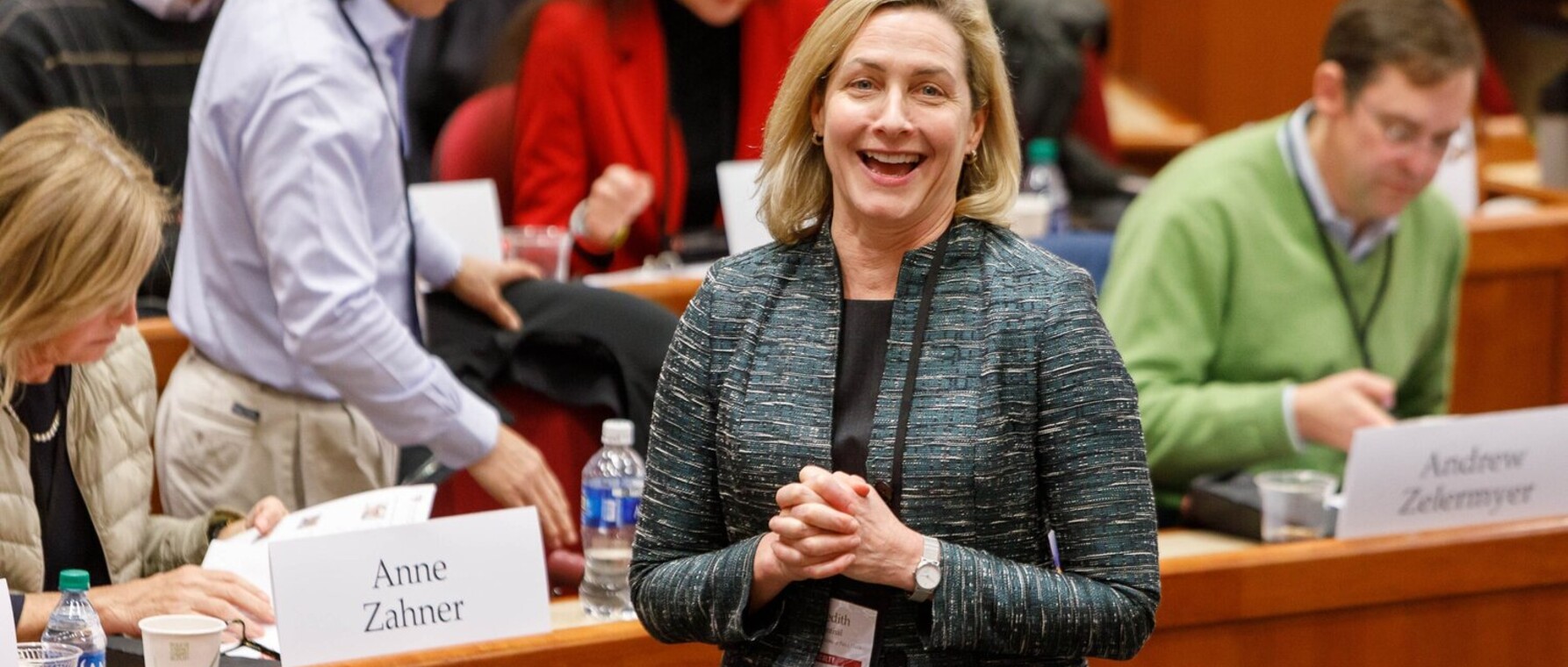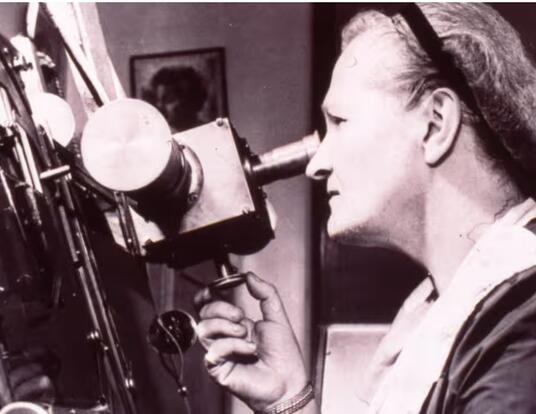A Healthy Interest in Financial Incentives
Harvard Griffin GSAS Voices: Meredith Rosenthal, PhD ’98

Throughout its 150th anniversary year, GSAS is foregrounding the voices of some of its most remarkable alumni and students as they speak about their work, its impact, and their experiences at the School.
Meredith Rosenthal is the C. Boyden Gray Professor of Health Economics and Policy at the Harvard T.H. Chan School of Public Health, where she researches policies to address affordability and value in healthcare. She talks about how financial incentives in healthcare play out in real life, serving as a member of the National Academy of Medicine, and the mentorship that enabled her to succeed at GSAS—and beyond.
Tradeoffs in Healthcare
I study financial incentives in the healthcare system in the United States—particularly those that arise from the way we pay doctors and hospitals. I try to understand how payment affects the quality, cost, and equity of healthcare.
What I’ve found is that how we pay our doctors and hospitals does affect the quality and affordability of care—but not always in the ways we think it will. My research shows that some efforts to improve quality by paying physicians and hospitals based on performance metrics have not worked as well as we would have liked them to.
For example, some health insurance companies have offered physicians bonuses for high rates of compliance with certain guidelines that are supposed to improve care for people with diabetes or asthma. Sometimes these bonuses are designed in a way that rewards physicians for having healthier patients to begin with rather than improving their health. That could affect patients negatively because doctors might avoid treating those who are sicker. Studies have demonstrated, for instance, that when we reward cardiovascular surgeons for having better outcomes, they become less likely to operate on racial and ethnic minority patients who were perceived to be high risk.
It’s important to understand the risks and benefits when setting up financial incentives for physicians and hospitals. Moreover, the people who benefit and those who face adverse effects of a certain incentive are often different. So, even when an incentive program improves care overall, it may worsen inequities.
From Publishing to Policy
I’m very proud of being elected in 2014 to the Institute of Medicine, now known as the National Academy of Medicine. Tens of thousands of doctors were nominated that year but only 80 were chosen.
As a member of the Academy, I get to be a part of the national discussion on health policy. We participate in working groups, advise policymakers, and sometimes look into a topic or organize a panel of experts to discuss an important issue at the request of Congress or other federal agencies.
Five years ago, I had the opportunity to serve on a group looking at recent changes in Medicare payments that involved quality bonuses and incentives to control the total cost of care. Congress asked us to consider whether these kinds of models needed to account for social risk factors like poverty, racism, or lack of housing. It was an amazing experience to be part of that interdisciplinary group of health economists, sociologists, social epidemiologists, and others, all with a different perspective on the problem.
We put together a series of reports, and the Department of Health and Human Services based their testimony to Congress on that research. Ultimately, there was a change in the way Medicare considered social risk factors in its payment systems.
University-Wide Support
The health policy program at Harvard is truly a University-wide program, established as an interfaculty initiative by then-provost Harvey Feinberg. I was in the third cohort, which was still pretty small at the time. It was an amazing opportunity to be part of Harvard at large.
I had a lot of terrific mentors when I was a student at GSAS. John D. MacArthur Professor of Health Policy and Management Joe Newhouse was incredibly supportive of my career. Otto Eckstein Professor of Applied Economics David Cutler, who now runs the program, has been a longtime mentor. And last but not least, my advisor, Margaret T. Morris Professor of Health Economics Richard Frank, really taught me everything I know about mentoring.
Among his many other acts of generosity, Richard invited me to collaborate on a series of research projects that leveraged a partnership with a large California insurer. That project became the platform for my dissertation, the first big grant I worked on as an assistant professor, and ultimately led to my most cited work on pay for performance.
The support I got from the health policy program was the most memorable part of my GSAS experience. The faculty that oversees it continue to enable students to make connections between the Medical School, the School of Public Health, the Kennedy School, and the Faculty of Arts and Sciences.
Get the Latest Updates
Join Our Newsletter
Subscribe to Colloquy Podcast
Simplecast





